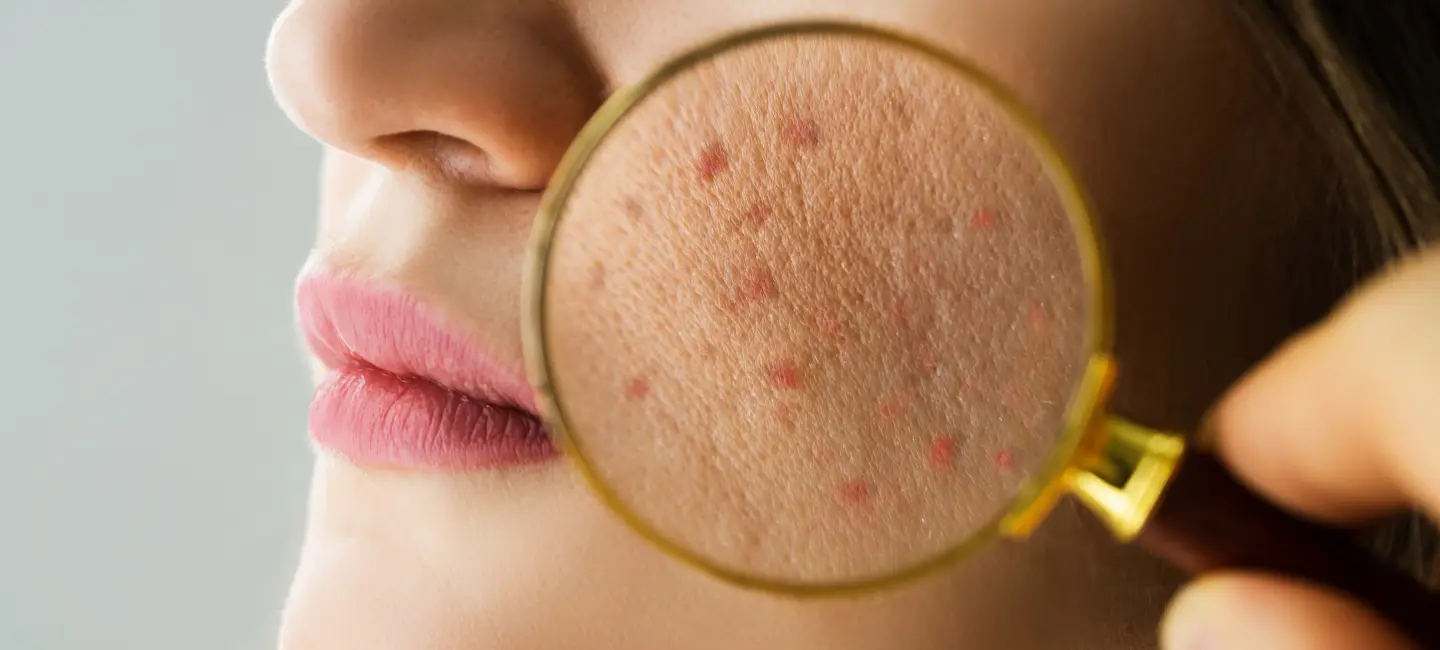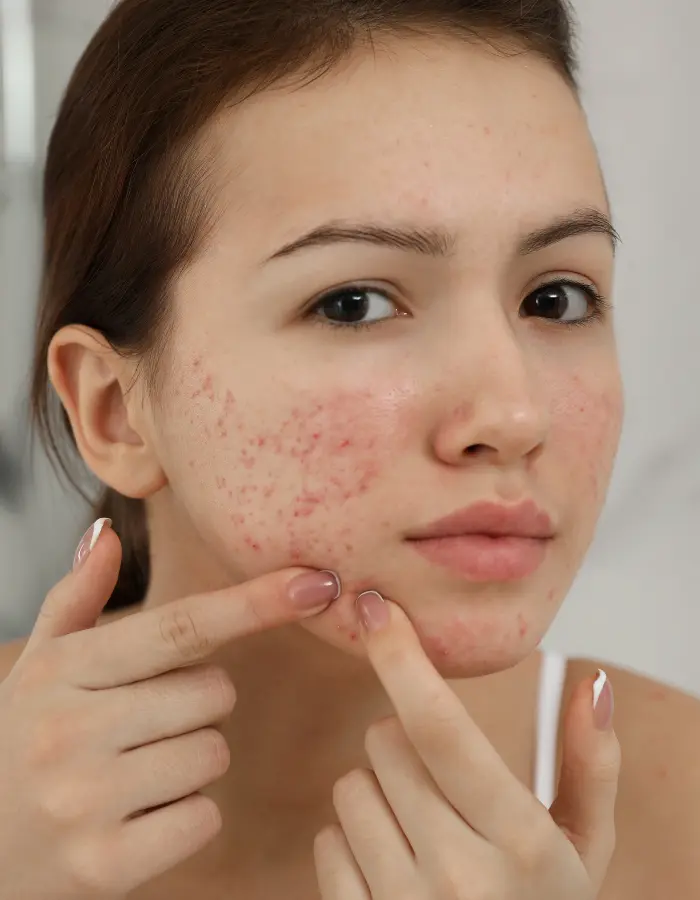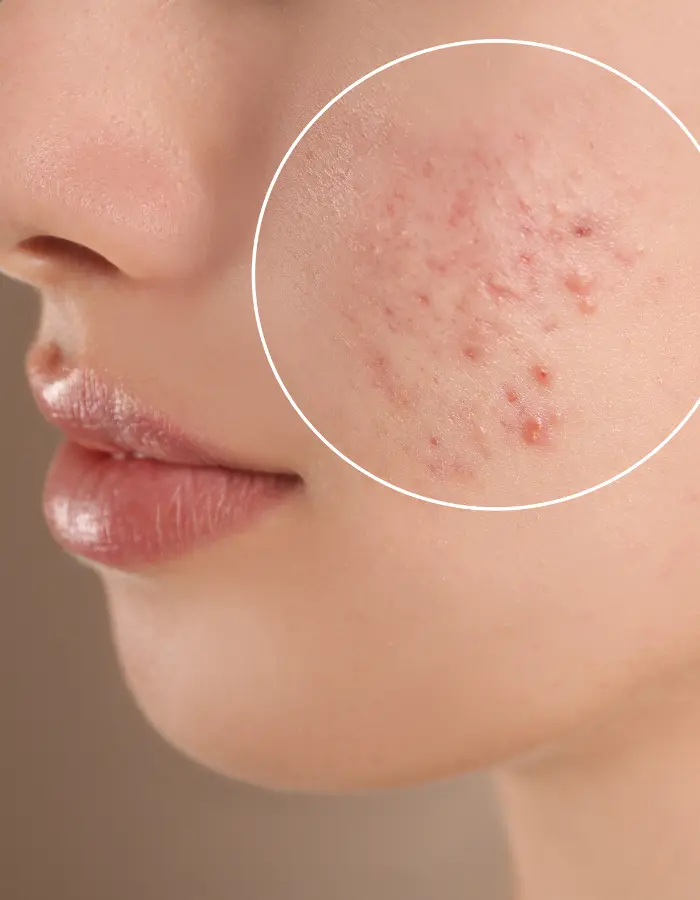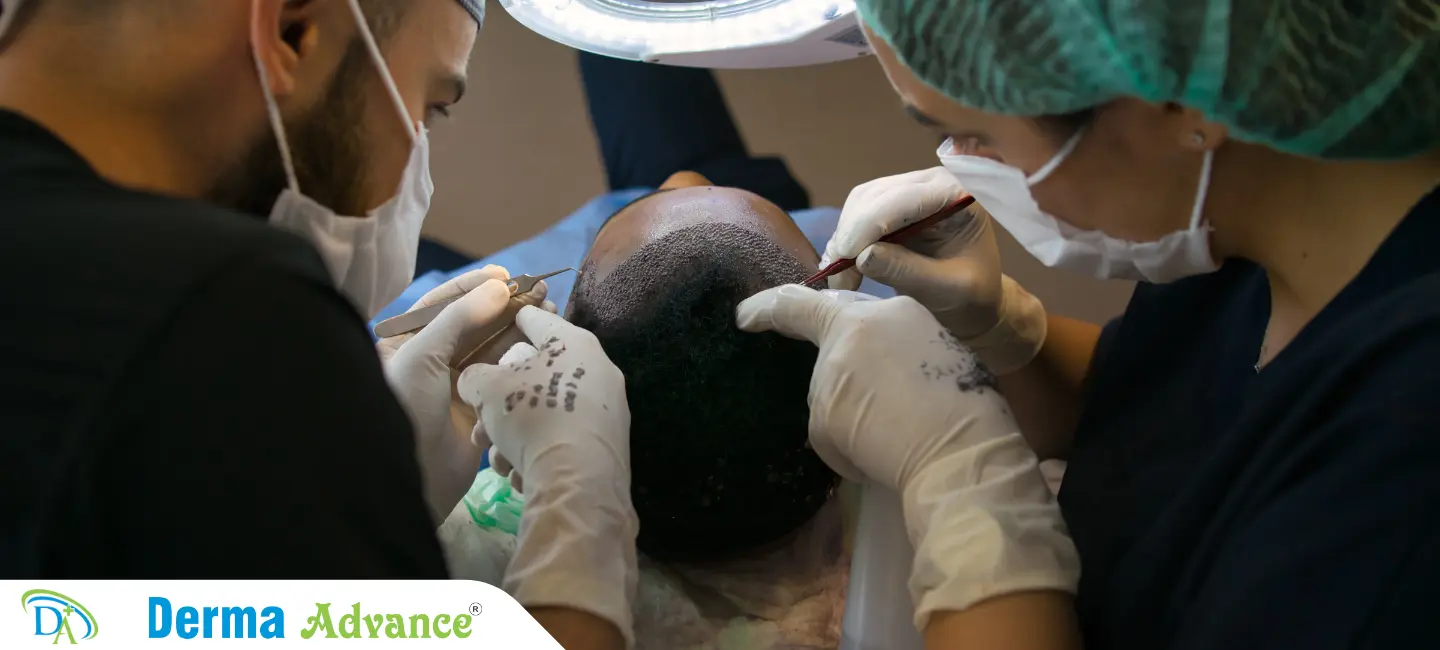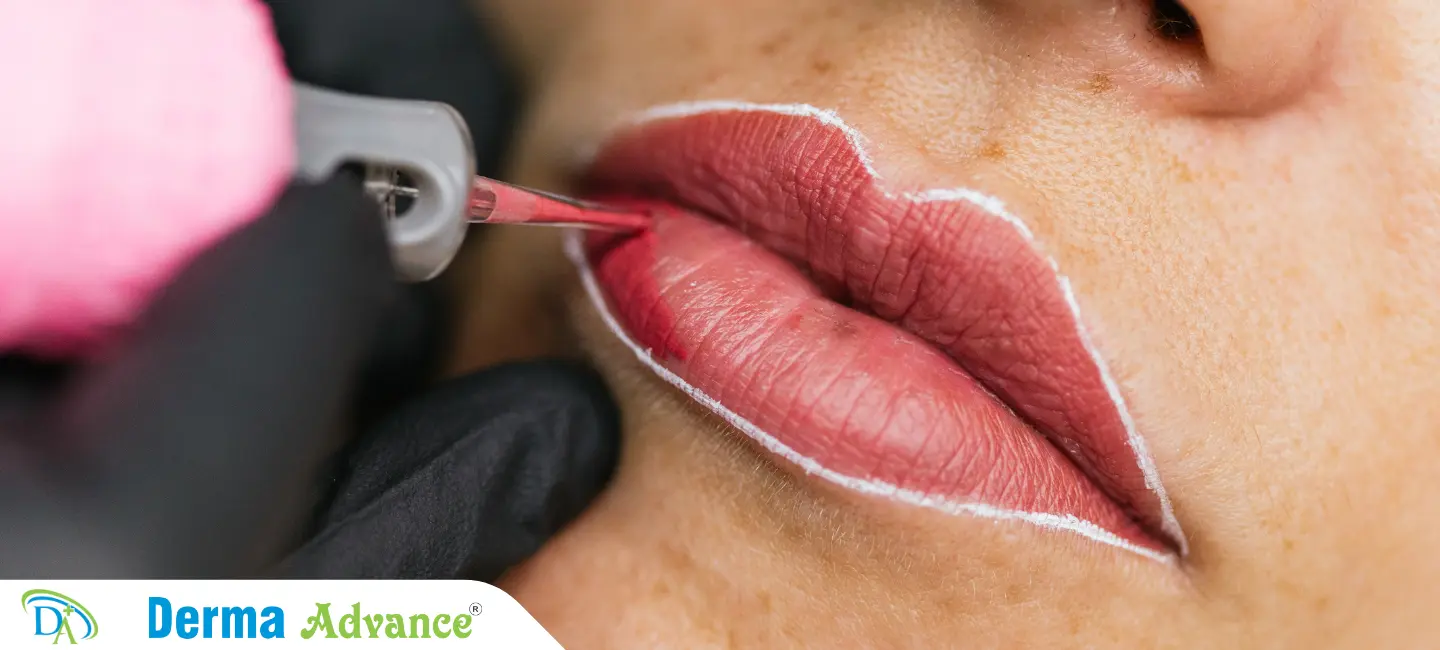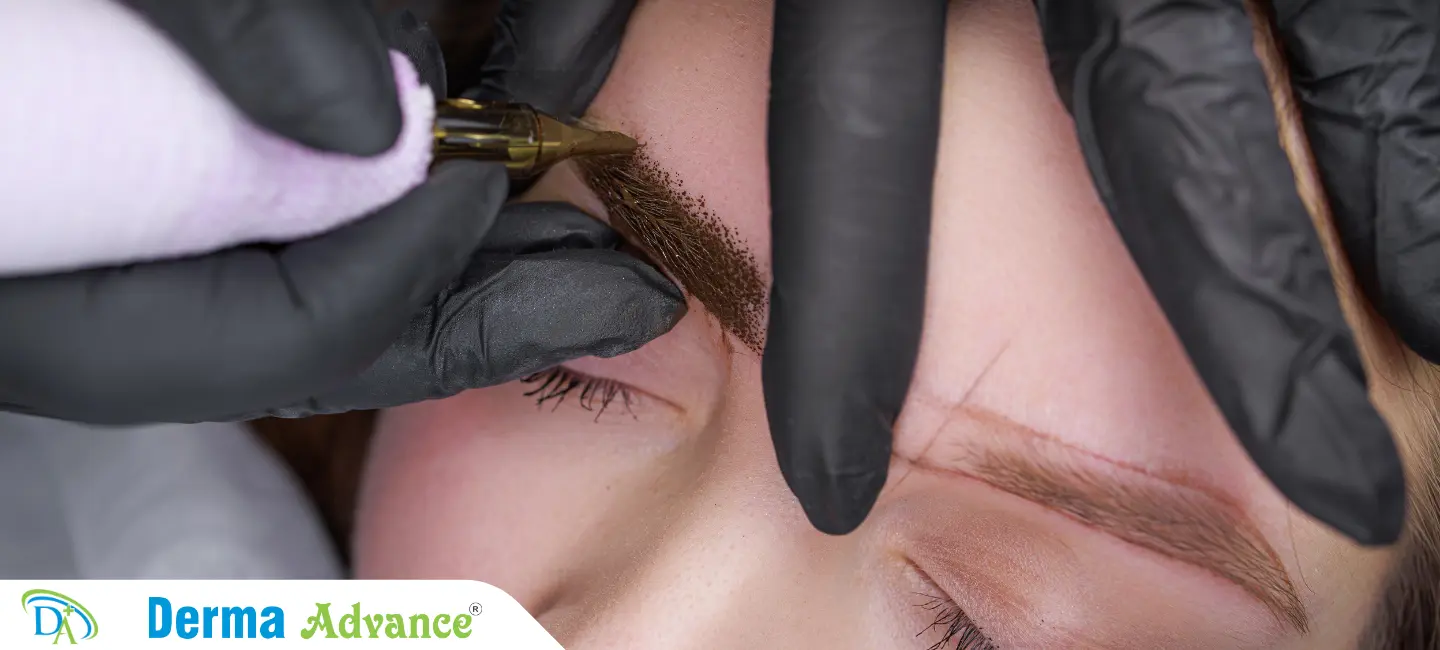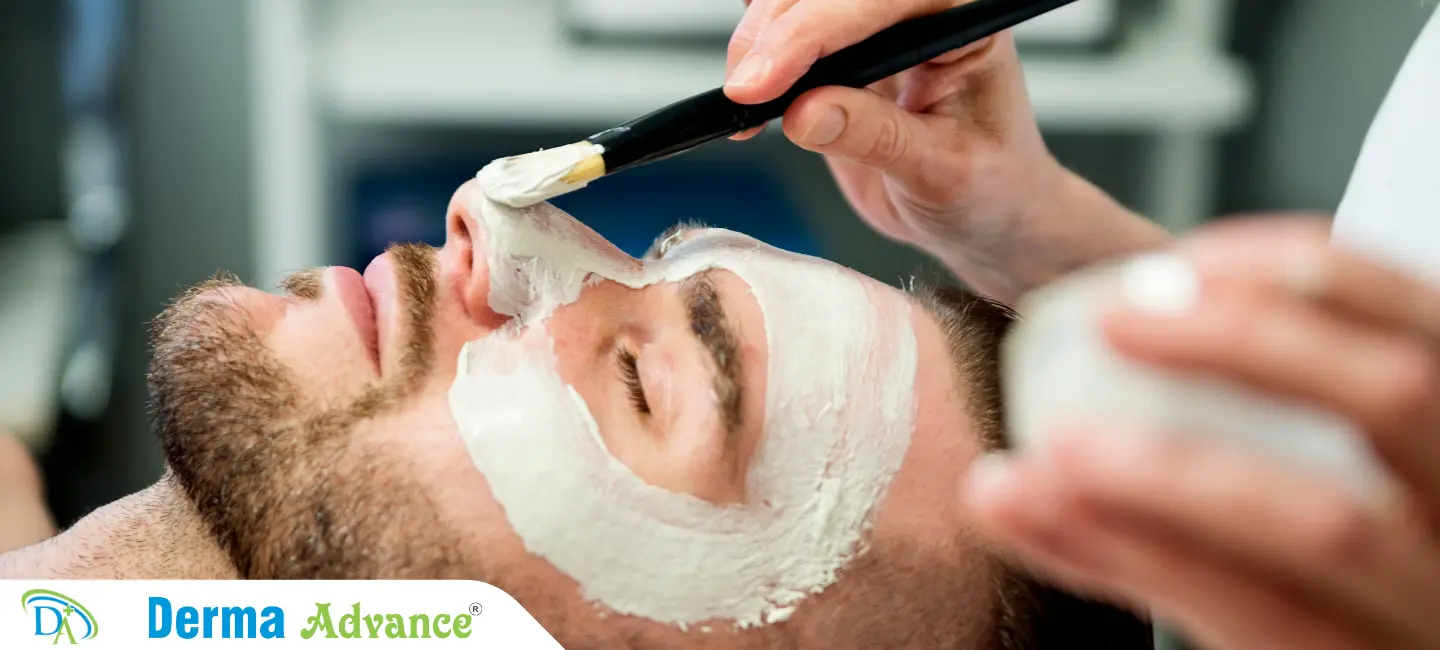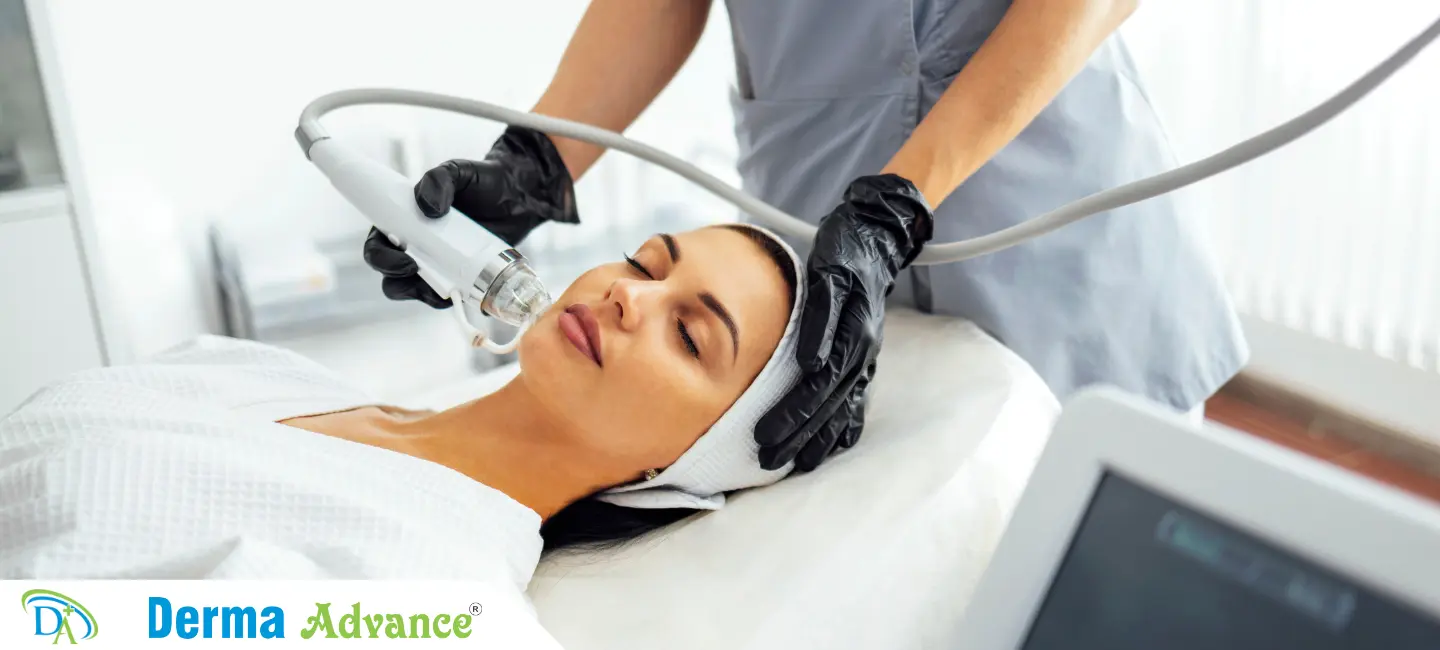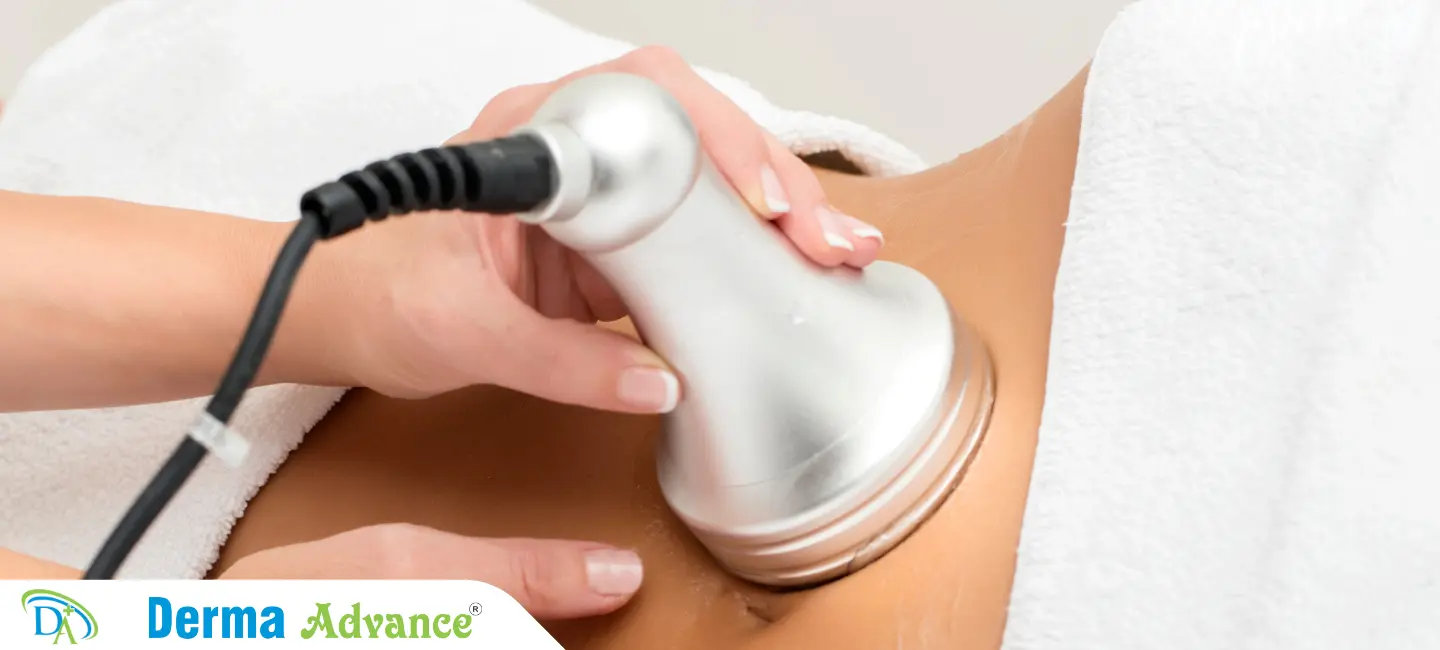What is Acne?
Acne is a common skin condition characterized by pimples, blackheads, and cysts that occur when hair follicles are clogged with oil and dead skin cells.
Acne primarily affects the face, chest, and back, appearing as whiteheads, blackheads, and pimples. It is most common during puberty but can persist into adulthood. Hormonal changes, stress, and certain cosmetics often trigger or exacerbate this condition. Acne can range from mild to severe, potentially leading to scars and psychological distress.
At Derma Advance, we understand the impact of acne on self-esteem and quality of life. Our dermatologists use advanced diagnostic techniques to identify the root causes of your acne and tailor treatment plans accordingly. From topical treatments to laser therapy, we offer a comprehensive approach to manage and reduce acne, helping you achieve clearer, healthier skin.
Immense Care
We aim to provide immense care tailored to manage and treat your health condition. Be assured, you are in safe hands!
Modern Techniques
We provide modern treatments to ensure you get the quickest and most effective solution to your health conditions!
Symptoms of Acne
What are the Symptoms of Acne?
Acne symptoms vary in severity and can affect different parts of the body. Common symptoms include the appearance of whiteheads and blackheads, which are small, plugged pores. Pimples, which are raised red spots with a white center, can also form when hair follicles get infected. Severe acne can result in cysts, which are painful, pus-filled lumps beneath the skin surface. These cysts can cause scarring if not treated properly.
Other signs of acne include tenderness and inflammation around the affected areas, making the skin feel sensitive to touch. Acne may also lead to post-inflammatory hyperpigmentation, leaving dark spots on the skin after pimples heal. Persistent acne, especially in adults, can be indicative of underlying health issues or hormonal imbalances that need professional evaluation.
Addressing acne promptly is crucial to prevent complications and long-term skin damage. At Derma Advance, we provide a thorough assessment to determine the best treatment strategy for each individual, ensuring effective management and relief from acne symptoms.
Whiteheads and Blackheads
Small, clogged pores often appearing on the face. Whiteheads are closed, while blackheads are open and darkened by oxidation.
Pimples
Raised, red spots with a white center, typically resulting from inflamed or infected hair follicles.
Cysts
Painful, pus-filled lumps beneath the skin surface, which can lead to scarring if untreated.
Inflammation
Redness and swelling around affected areas, making the skin sensitive and tender to touch.
Post-Inflammatory Hyperpigmentation
Dark spots left on the skin after pimples heal, often caused by excessive melanin production in response to inflammation.
Diagnosis of Acne
1
Physical Examination
Our dermatologists examine your skin to identify acne types, severity, and affected areas, guiding the treatment plan.
2
Medical History
Discusses your medical background, including previous acne treatments and potential triggers like diet, stress, and hormonal changes.
3
Skin Analysis
Involves assessing skin type and condition to customize treatment, considering factors like oiliness, sensitivity, and acne-prone areas.
4
Hormonal Evaluation
For persistent acne, we may conduct tests to check for hormonal imbalances that could be contributing to breakouts.
5
Allergy Testing
Identifies any allergic reactions to skincare products or medications that may be aggravating your acne condition.
6
Lifestyle Assessment
Examines your diet, stress levels, and habits to identify lifestyle factors that may influence acne development.
Book Your Appointment
Find Solution to Acne Now!
Meet Our Expert Acne Specialists


Treatment of Acne
How is Acne treated?
Treating acne involves a multifaceted approach tailored to the severity and type of acne. Topical treatments like retinoids, benzoyl peroxide, and salicylic acid are effective for mild to moderate acne, helping to unclog pores and reduce inflammation. For more severe cases, oral medications such as antibiotics or hormonal treatments like birth control pills can help regulate hormone levels and bacterial growth.
In addition to these treatments, advanced procedures like chemical peels, laser therapy, and microdermabrasion can be utilized to improve skin texture and reduce scarring. These treatments target the deeper layers of the skin, promoting cell turnover and collagen production for a smoother, clearer complexion. At Derma Advance, our dermatologists customize treatment plans to suit each individual’s skin type and condition, ensuring optimal results and long-term skin health.
Topical Treatments
These include creams and gels like retinoids and benzoyl peroxide that help to reduce acne by unclogging pores and decreasing inflammation.
Oral Medications
Antibiotics and hormonal treatments regulate hormone levels and bacterial growth, addressing the root causes of moderate to severe acne.
Chemical Peels
This involves applying a chemical solution to remove the top layers of skin, reducing scarring and promoting new skin growth.
Laser Therapy
Uses focused light to target acne-causing bacteria and reduce sebaceous gland activity, improving skin texture and clarity.
Microdermabrasion
A minimally invasive procedure that exfoliates the skin to remove dead skin cells and promote the growth of new, healthy skin cells.
Personalized Skincare
Tailored skincare routines and products recommended by our dermatologists to maintain clear and healthy skin post-treatment.
Causes of Acne
1
Hormonal Fluctuations
Changes in hormone levels, especially during puberty or menstrual cycles, can increase oil production and trigger acne.
2
Genetics
Family history of acne can make individuals more prone to developing acne due to genetic predisposition.
3
Diet
High-glycemic foods and dairy products can exacerbate acne by increasing inflammation and oil production.
4
Stress
Stress increases oil production in the skin, leading to clogged pores and breakouts.
5
Improper Skincare
Using comedogenic products or over-cleansing can disrupt the skin barrier, leading to increased acne formation.
6
Environmental Factors
Pollution, humidity, and exposure to certain chemicals can irritate the skin and contribute to acne development.
How to Prevent Acne?
Acne is a common skin condition characterized by pimples, blackheads, and cysts that occur when hair follicles are clogged with oil and dead skin cells.
Preventing acne starts with a good skincare routine. Cleanse your skin twice daily with a gentle cleanser to remove excess oil and impurities. Use non-comedogenic skincare and makeup products to avoid clogging pores. Regular exfoliation helps to remove dead skin cells and prevent breakouts.
Diet and lifestyle also play a crucial role in acne prevention. Avoid high-glycemic foods and dairy products that may trigger acne. Manage stress through activities like yoga or meditation, as stress can increase oil production in the skin. Staying hydrated and getting adequate sleep are also essential for maintaining healthy skin.

